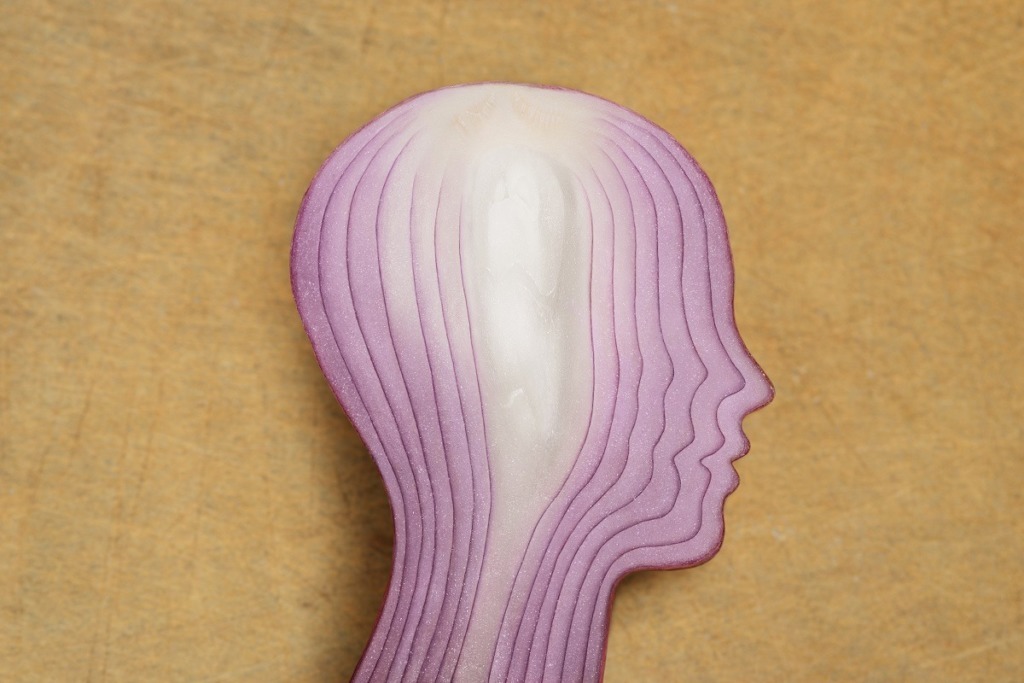
Exploring the Koshas
Written by Casey Castro
Kosha means "sheath" in Sanskrit. In yoga, the term is used to describe metaphorical layers within the human body. This meaning comes from the ancient Hindu texts called the Upanishads. When there is optimal health and well-being the layers are seamlessly blended and cannot be clearly defined. However, when these are out of balance we experience a host of dysfunctions. There are 5 layers of Koshas starting at the centre of the body and moving outward. Much like the layers of an onion. Annamaya Kosha is the physical body. This concerns DNA, cells, tissues, nerves, organs and the body systems. This Kosha oversees our ability to feel the inside the body, our movement, injuries/ accidents, food and digestions and addictions.
When Annamaya is out of balance we can feel spacey, fearful, dissociated and experience physical ailments. When it is in balance we feel centred, have postural awareness, we are less prone to injury and consciously consume food. Asanas or physical yoga poses keep this Kosha healthy.
Pranamaya Kosha is the energetic body, the circulatory and respiratory system. This concerns the electromagnetic energy field, the chakras, chi/prana and auric field. Pranamaya oversees our ability to feel energy moving, the sensation of heat and cold, sleep and our calm state. When this Kosha dysfunction we experience fatigue, pain, lack of motivation, inefficient breathing patterns and can become easily stressed. A well functioning Pranamaya Kosha we breathe easily, our body becomes more open and receptive and we have a sense that we are bigger than the confines of our skin. Practising Pranayama or breathing techniques will balance this Kosha. Manomaya Kosha is the mind and our emotions, covering the nervous system and cognitive function. Thinking, feelings, fears, doubts and motivations are centred here. This affects our thoughts, daydreams, perceptions, emotions, beliefs, opinions and assumptions.
When Manomaya Kosha is out of balance we have issues with our mood resulting in depression, and anxiety, cognitive distortions and negative thoughts. In balance, we feel stable and have a sense of well-being.
Maintaining Manomaya is best achieved through meditation. CASEY CASTRO OCTOBER eBubble Life Vijnanamaya Kosha is wisdom and consciousness. It controls our intellect, values and intuition. Qualities include awareness, insight, states of flow, morals and ethics. Dysfunctioning we are reactive, we lack objectivity and feel off-centred. In balance we have the ability to dis-identify with thoughts and self-descriptions, we have the ability to witness the mind and life and the ability to discern and direct our will. Meditation, pranayama (breathwork) and asana (yoga poses) will keep Vijnanamaya Kosha balanced. Anandamaya Kosha is a state of bliss.
Connection to the unconscious, deep connection to self, bliss, and acceptance of a higher self. When we are out of alignment here we experience a lack of joy, lack of connection and suffering. Bringing this Kosha back into balance we have feelings of peace, love and joy. We have a sense of presence and oneness, and a sense of wholeness and integration.
Tapping into yoga poses, breath work and meditation we can find balance here. By discovering each of the Koshas we can have a better understanding of our body in the greater sense. We can dive into various yoga practises exploring the effects on the Koshas which in turn affects our mental health on a variety of levels. Working with them as a whole we bring harmony to ourselves. It’s a never-ending process that will ultimately benefit you on many levels. When we consider the Koshas in mental health we can see that all of these can, and do, go out of balance at one time or another. When they do we can use the board term of yoga to bring them back into balance, step by step. We all experience the imbalances and dysfunctions from time to time, through yoga we can learn to manage the 5 Koshas and to improve functionality through this. Balancing the Koshas is not a quick fix or a one-stop fix to addressing mental health, however it is certainly a an element to consider.




2 Comments
I want to to thank you for this excellent read!! I certainly enjoyed every bit of it. I have you book-marked to check out new things you post…
Thank you, we hope to continue providing high quality articles for you to enjoy.